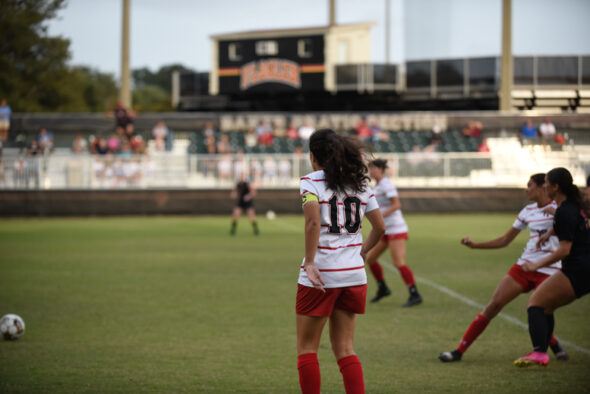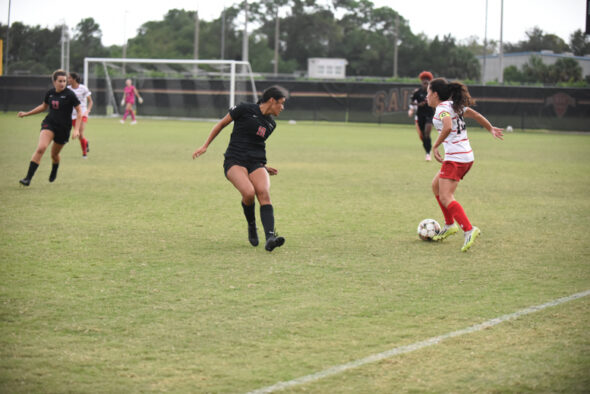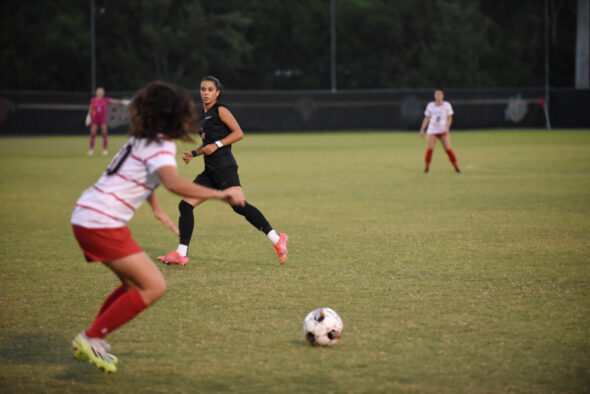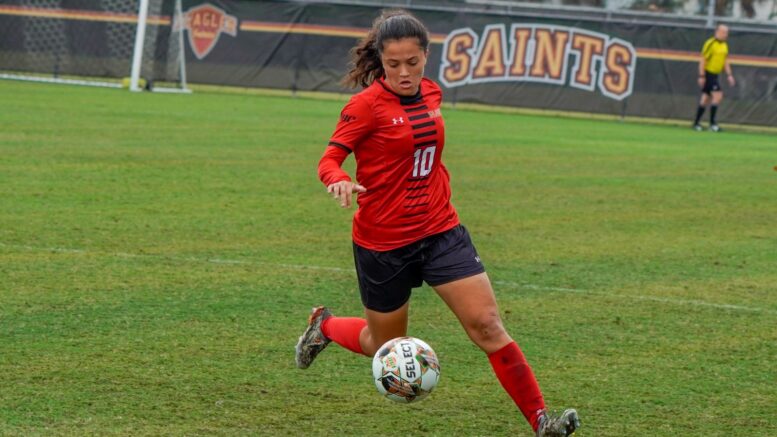By Hannah Duffey
The love for soccer started at age five when Andrea Fernandez was dabbling around with different sports, trying to find one that stuck with her.
“Soccer in Spain is much more technical and tactical, while in these leagues, the physical is much more predominant,” she said. “The competitiveness in Spain is higher because women’s soccer is becoming professional at various levels.”
But for women soccer players in Spain, the sport hasn’t always been available to them.
It wasn’t until 1971 that it became legal for women to play soccer there, and another 9 years for the first women’s professional team to start.
Today, Spain ranks among the top European nations in the women’s game. There are almost 100,000 women and girls registered as players by the RFEF, a 55% rise since 2014, according to La Liga Feminina in Euro News.
Fifty-two years ago seems like another lifetime ago, but that still has a lasting impact on women playing soccer today.
For Fernandez, when she started playing, it was on a male team until she was able to join a women’s league.
“When I first started playing soccer it looked weird for a girl to play and they (her parents) never denied me the chance to play the sport I loved,” she said.
The issue of inequality for women in sports is not an issue that starts when a player becomes well-known on a bigger platform. It is a problem for women who play sports at such a young age and have to learn to navigate and overcome them.

Even with so many unknowns, Fernandez continued to play the sport that she loved, knowing a time would come when she would be able to compete on a female team and make a name for herself.
“For me, soccer means my life. Soccer is everything to me, it is my state of mind. As I said before since I have grown up with a ball at my feet, I do not know what life would be without a ball around me,” she said. “Thanks to soccer, I have met people and places that I will never forget and values that I will never lose.”
She has taken those talents from several teams in Spain to America, playing for Flagler College, where she has made a name for herself.
Coming to America to play soccer seemed like a big dream for Fernandez, along with so many unknowns, including leaving her family. But they have supported her since day one.
After being contacted by Coach Ashley Martin, Flagler College’s women’s soccer head coach, and him conveying his love for soccer, it did not take much convincing before Fernandez said yes.
“I am very grateful to Coach Ash and Coach Tim for giving me the opportunity to come here, and trusting me from the beginning,” Fernandez said. “I am glad that they looked at my soccer abilities and not my English proficiency.”

Like anyone, the language barrier is a major concern for people who come to the States to play any sport, but the diversity within Flagler’s soccer team made Fernandez feel welcomed and like she had a home away from home.
“The fact that the staff and some players spoke Spanish helped me to picture myself in my new home,” she said.
From the moment Andrea stepped foot on the field for the first year, she has been a powerhouse that cannot be stopped.
During her first-year season, she had 17 goals and was then named Peach Belt Conference Player of the Week.
Fast forward to her junior season, the streak continues, and she has not only been named PBC player of the Year, but she has broken the school record after scoring her 45th career goal against GCSU.
“To be honest, I never imagined some of the achievements I have made, but without a doubt, the best achievements I have are the ones we have made as a team,” Fernandez said.

What Fernandez is doing on the level here at Flagler College is what female players are doing on a larger scale like her favorite player, Aitana Bonmatí, who is a professional Spanish soccer player for Barcelona and Spain’s women’s national team.
Much like Fernandez, Bonmatí saw the inequalities for women playing soccer at the professional level, kept working at her craft and made it to that level of success and is breaking barriers for the women coming up behind her.
Although she has been so successful on her own, she will always credit her teammates, because without them, she said she wouldn’t be where she is today.
“The role that my teammates have played and continue to play is essential because, without them, I could not have done it. What I like most about this sport is that it is collective,” she said. “This means that there are no individuals; when someone´s energy goes down, the rest of the team is there to lift that person. I am lucky to be part of a great team with great people, and I will always remember them.”



Be the first to comment on "Andrea Fernandez Making Her Mark on Women’s Soccer"